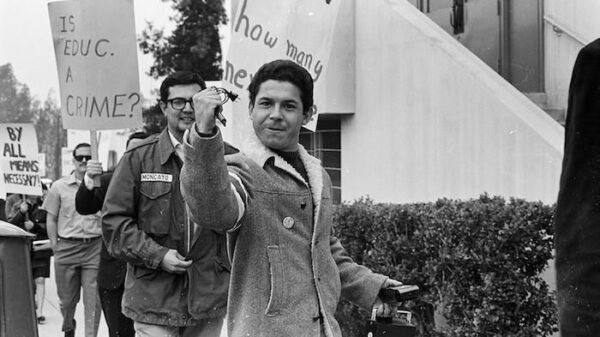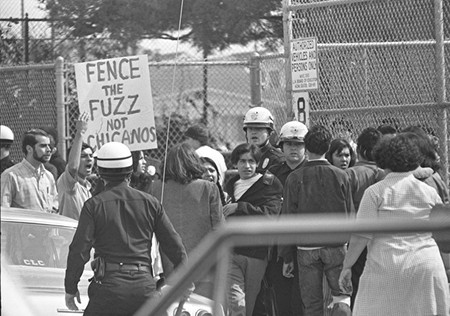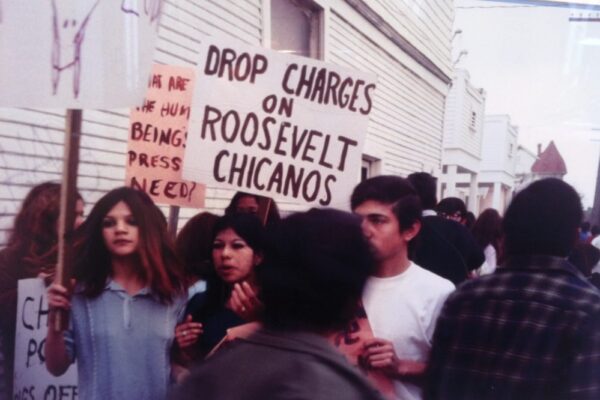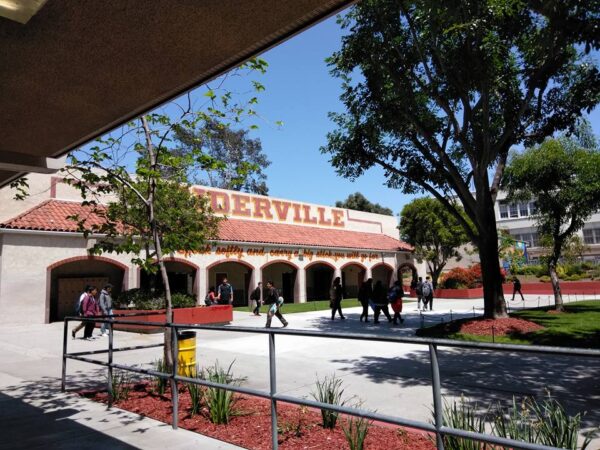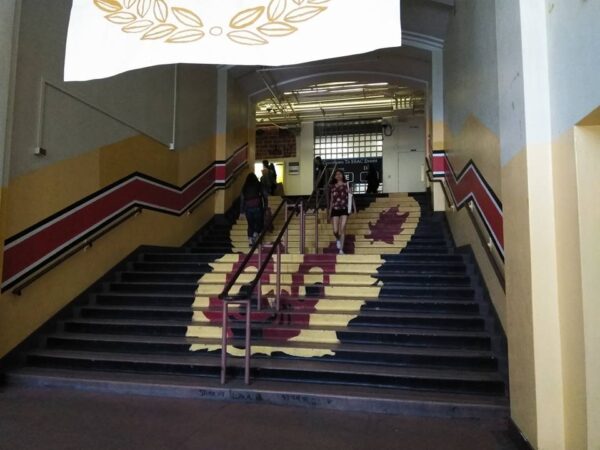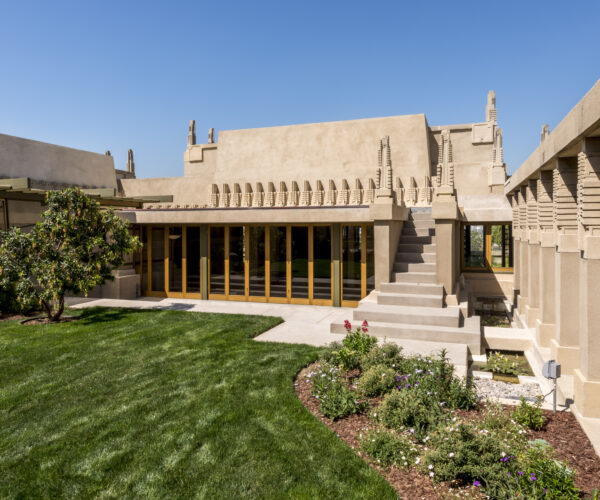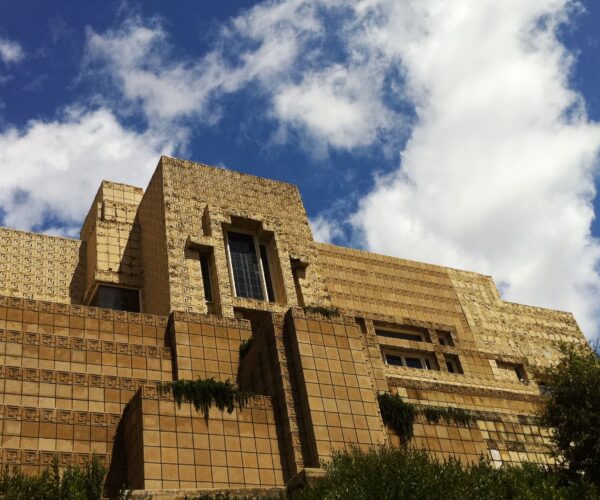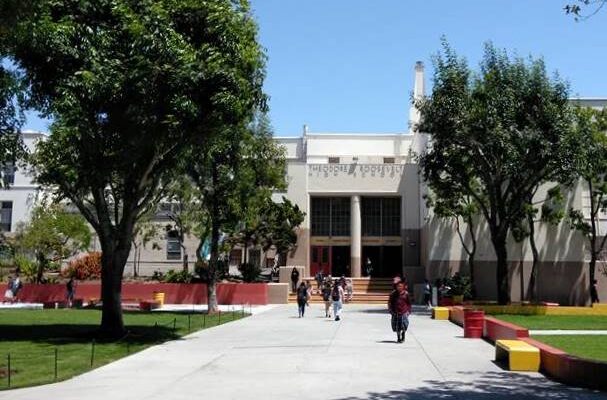
Place
Roosevelt High School
Located in Boyle Heights for over 100 years, this high school played a key role in the East L.A. Chicano Student Walkouts of March 1968.
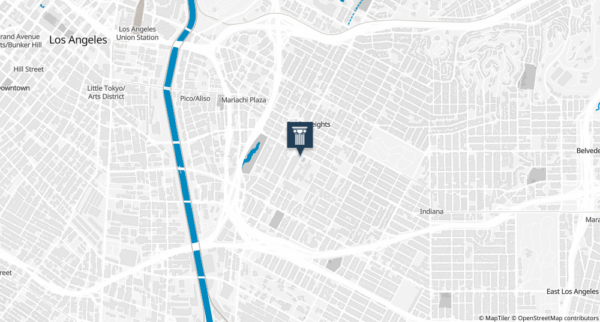

Place Details
Address
Neighborhood
Designation
Property Type
Government Officials
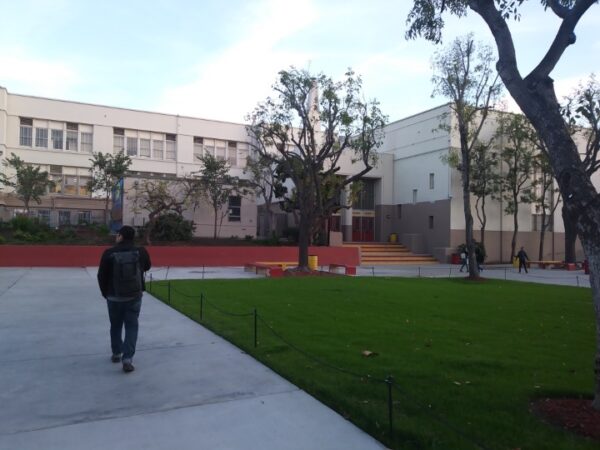
Roosevelt High School's historic R Building was demolished in 2019. Photo by M. Rosalind Sagara/L.A. Conservancy
Overview
In 2018, the LAUSD Board of Education approved a comprehensive modernization project at Roosevelt High School that called for the demolition and replacement of a rare collection of buildings associated with the nationally significant Chicano Student Walkouts of 1968.
About This Place
About This Place
Built in 1922, and opened one year later, Roosevelt High School has served as an important neighborhood anchor and iconic landmark of Boyle Heights for more than 100 years. The original Auditorium and Classroom Building, popularly known as the R Building, received a seismic upgrade and PWA Moderne-style remodel following the 1933 Long Beach earthquake. Over the decades, the campus expanded to nearly twenty-three acres, bounded by Mathews, Mott, Fourth, and Sixth Streets
SurveyLA and LAUSD’s 2017 historic resource evaluation of the campus found Roosevelt High to be eligible for listing in the National Register of Historic Places for its associations with the East L.A. Chicano Student Walkouts and the Chicano Civil Rights Movement.
In March 1968, Roosevelt High School, along with Wilson, Lincoln, Belmont, and Garfield High Schools, was thrust into the national spotlight. Thousands of Chicanx students staged a series of organized walkouts to demand educational equity, known as the East L.A. Chicano Student Walkouts (Blowouts). These walkouts are considered the first major protest against racial and educational inequality staged by Chicanxs in the U.S. and an important catalyst for the Chicano Civil Rights Movement.
Roosevelt High School administrators locked the gates surrounding the school to prevent striking students from leaving, and LAPD squad cars surrounded the campus to intimidate the strikers. Yet students participated in the Walkouts all the same.
The R Building served as the primary setting for activities associated with the Walkouts on campus, including a sit-in that students staged on the lobby stairs and an assembly held by district officials in the auditorium.
Our Position
The Roosevelt High School Comprehensive Modernization Project Draft Environmental Impact Report was released by LAUSD in February 2018 and proposed demolition for almost all of the historically and culturally significant resources on campus, including the R Building.
The Committee to Defend Roosevelt High School/Defendamos la escuela Roosevelt, a grassroots group of local residents and Roosevelt High alumni, and the Conservancy urged LAUSD to reuse Roosevelt High’s historic resources as part of the campus-wide modernization effort. A partial preservation approach could preserve the R Building while integrating new construction and desired community amenities, including a wellness center.
In 2018, the National Trust for Historic Preservation included the five East L.A. Walkout Schools, including Roosevelt High, on America’s 11 Most Endangered Historic Places list.
Roosevelt High School was one of eleven schools identified in an initial phased effort to upgrade facilities throughout LAUSD initiated by the Board of Education in December 2015. The district-wide school modernization program by LAUSD aimed to ensure safe schools that meet current program needs.
Though LAUSD had upgraded older buildings at other campuses, including Jordan High School in South Los Angeles and John Burroughs School in Hancock Park, to meet current needs, it took a drastically different approach with Roosevelt High. Among many of its claims, LAUSD cited that the R Building had significant seismic issues that would be too costly to resolve.
In August 2017, the Board of Education authorized LAUSD to enter into a contract for design and construction activities associated with the Roosevelt High School Comprehensive Modernization Project. This action appeared to have pre-committed LAUSD to the project design before the completion of the environmental review process, which should have considered a range of feasible preservation alternatives
